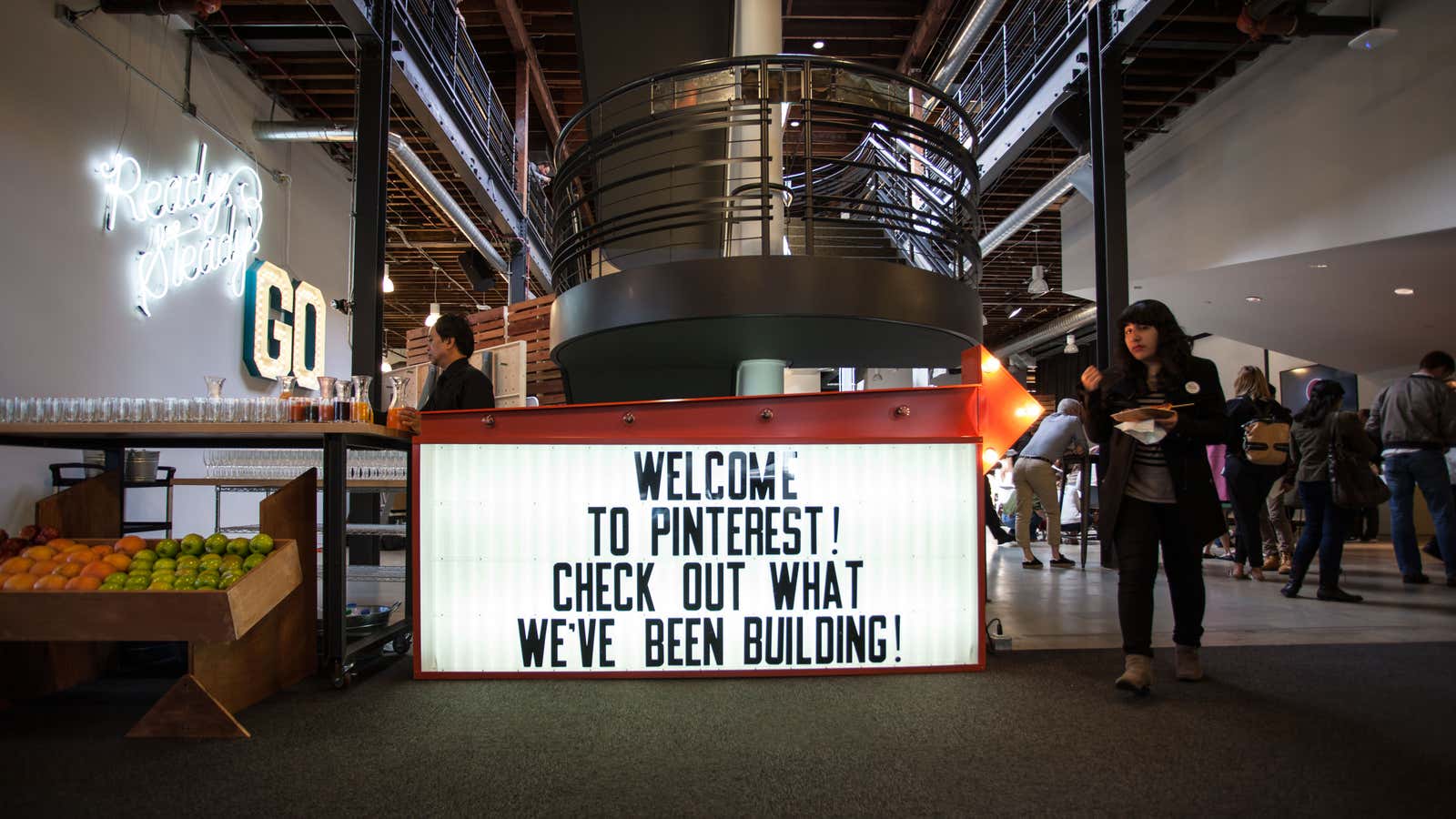Here’s what to expect when you’re expecting at Pinterest:
- You’ll get four months off (moms and dads)
- For the next four weeks, you’ll only be required to come in one day a week (and still get 100% pay)
- Pinterest will pay for four one-on-one classes with a personal parenting coach
- They’ll pay for online classes if your child has learning or developmental disabilities
- They’ll pay to ship your breast milk home if you’re traveling for work
- They’ll pay for a service to lend you books to read to your kid
- They’ll pay to help you find a babysitter
- They’ll pay to cover adoption costs (up to $5,000) and surrogacy (up to $20,000)
- They’ll pay to freeze your eggs if you’re not quite ready to start having children
Here’s why it matters:
Parental leave is not enough to create equal opportunities for men and women at work—and helping employees adjust to life as a working parent is as important, if not more, than merely giving them time off.
As Quartz At Work has noted before, researchers in Denmark, a country with a very generous national parental leave policy, found that having a child still has a far worse impact on wages and career trajectories for women than for men—and the more children the women have, the bigger the wage penalty.
The researchers also found that women with children also are less likely to become managers.
As the Danish study shows, the gender wage gap is really a childcare penalty. But employers can take steps to shrink the gap.
Obviously, Pinterest is an exceptional case. The company has raised more than $1.5 billion since its launch in 2009 and it is reported to generate nearly $500 million a year in revenue through its ads business. Tech giants have been known to spend as much as $25,000 a year per employee on benefits, which is an impossible standard for most businesses in the world to meet.
But the message Pinterest sends to its employees—and especially its working parents—is that the development of their lives should not come at the expense of development of their careers.
“We believe that supporting employees’ whole selves makes them happier and more productive,” says Beth Karlsson, Pinterest’s head of HR. “In order to do that we need to create a workplace where everyone feels like they can sustain a career here across all different types of life circumstances.”
According to an employee survey by Comparably, a compensation, culture, and jobs monitoring site, Pinterest is one of the top five tech companies to work for in terms of culture, diversity, and employee retention. Given the high cost of recruiting and training new employees, a generous parental benefit policy might be good not just for parents—it can be good for business, too.




